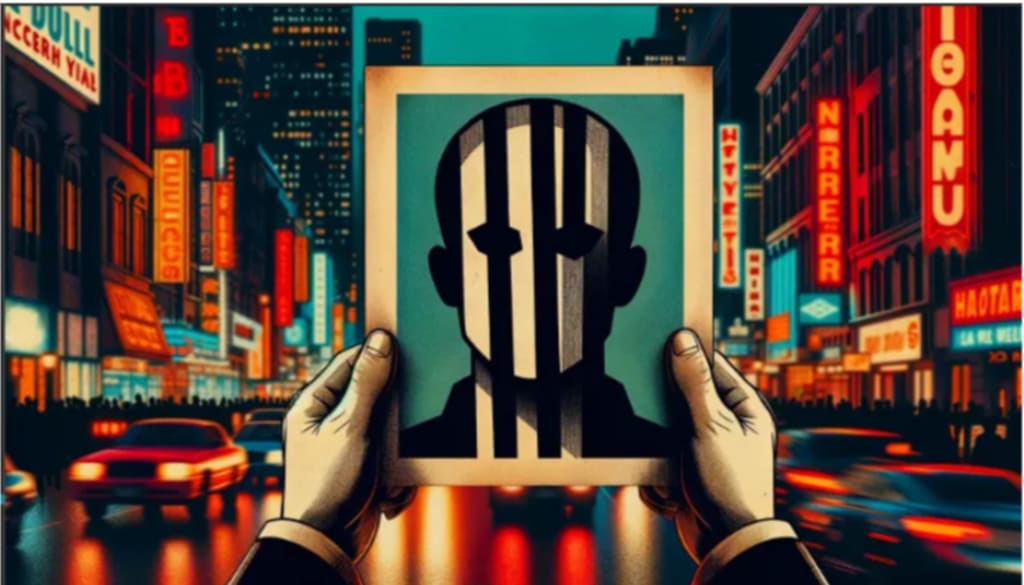How Society’s Wrong Views on Bipolar Affect the Afflicted
Labeling and Stigma: Society’s Missteps on Mental Health

You know, there’s a rather interesting thing that happens when society starts whispering and those whispers turn into conversations about what’s normal and what’s not. If you’re like me and you have bipolar disorder, you might start believing some of those whispers yourself. It’s called self-stigma, and it’s created by absorbing all the misinformation that people with bipolar are dangerous or somehow deeply disturbed. There have been days when I’ve said to myself, “Maybe they’re right about me.”
I’ve faced this head-on, and let me tell you, it’s no small matter. There’s this false assumption floating around that people with bipolar disorder are some sort of ticking time bombs. Every time there’s a news story about someone with bipolar causing trouble, I can almost see groups of people nodding and saying, ‘See, they are dangerous.’ These beliefs are not only incorrect but also harmful.
Living with bipolar disorder doesn’t make someone dangerous. It’s a condition, like any other medical one, that with the right treatment can be manageable. Yet, when you start to take in the stereotypes and see yourself through society’s bias on bipolar disorder, that’s when trouble begins.
Self-stigmatization in people with bipolar disorder is a disturbing trend. It’s like adding insult to injury — you have to cope with the highs and lows that the disorder brings, but you also end up digesting all the negative stereotypes and biases in society. These aren’t just harmless thoughts. They can grow into some troubling ways. According to the Crownview Psychiatric Institute, “Individuals experiencing high levels of self-stigma are less likely to seek professional help and are more likely to be hospitalized.”
The thing about self-stigma is how it slowly creeps up on you and changes your relationship with the world. Imagine worrying so much about what others might think if they knew about your bipolar disorder that you start withdrawing from relationships as I have done a lot over the years. I would always say to myself, “I’ll just keep to myself before the gig is up and people realize what’s going on and back away.” And this isn’t just about keeping a low profile; it’s about believing that you can’t achieve much of anything worthwhile, because, after all, how could you with bipolar.
This type of thinking is more than self-doubt emerging on a bad day; it can interfere with how someone functions day in and day out. It’s like being on an endless hamster wheel of personal distress, which keeps going back around and intensifies the stigma that started it all. Before you can bat an eye you’re not just dealing with bipolar disorder, but also digesting the stereotypes.
Now, where does all this stigma come from? Well, we should thank mass media for a good chunk of it. The way bipolar disorder is portrayed in films and TV shows often ranges from outrageously dramatic to blatantly misleading. Characters with bipolar disorder are shown as crazy, unpredictable and often dangerous — which is inaccurate but mostly hurtful. These portrayals shape societal perceptions leading to problematic stereotypes.
And speaking of the public, lack of education about bipolar disorder doesn’t help either. Many people hear “bipolar” and think of extreme behaviors because that’s what they’ve seen on the screen or read in news stories. They don’t see the everyday reality of living with bipolar, which includes many ordinary days, a lot of managing, but most of all plentiful amounts of normalcy.
Then there are those unfavorable descriptions of bipolar itself. Words like “manic” or “depressed” are thrown around casually, frequently used to describe minor mood fluctuations. This kind of language leads to a total misunderstanding of what bipolar disorder truly involves — a range of symptoms that can be managed with the right treatment and support.
So, what are we to do with all this? If you ask me, conversation — a real, honest-to-goodness talk about what bipolar disorder is and what it isn’t. It’s about debunking the stereotypes every chance we get and educating others about the realities of bipolar. It’s about people with bipolar disorder (and any mental health condition, for that matter) speaking their truth out against the stigmas that bind them.
At the end of the day, it’s about understanding that having bipolar disorder — or any mental health issue, really — is just one fraction of a person’s life. It’s not the sum of who they are as an individual, and it certainly shouldn’t be a source of shame. It is undeniable that as a society, we need to get better at supporting each other, at lifting each other up instead of tearing each other apart with our judgments. Because, really, haven’t we all got enough to deal with?
**Disclaimer:** All content on this post is original and written by the author, with AI assistance solely for spelling and grammar checks.
---
About the Creator
Joshua Feinberg
I'm channeling my bipolar disorder to shine a big, fat spotlight on mental illness, all while lobbing in a hefty dose of self-improvement and comedy. Think of it as therapy with a laugh track.
Enjoyed the story? Support the Creator.
Subscribe for free to receive all their stories in your feed. You could also pledge your support or give them a one-off tip, letting them know you appreciate their work.






Comments
There are no comments for this story
Be the first to respond and start the conversation.